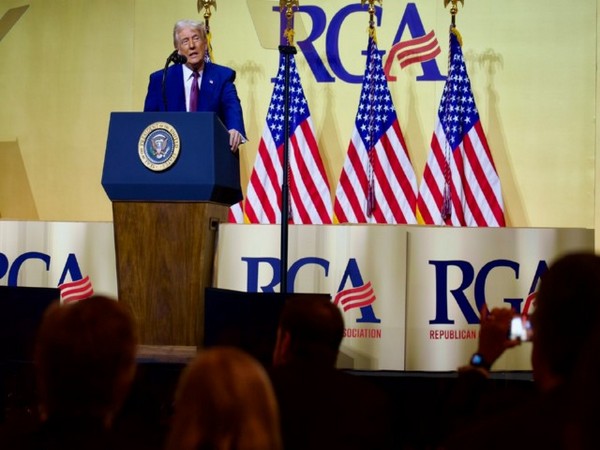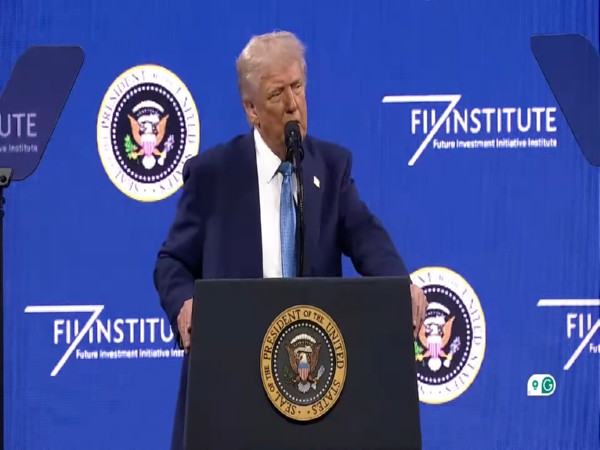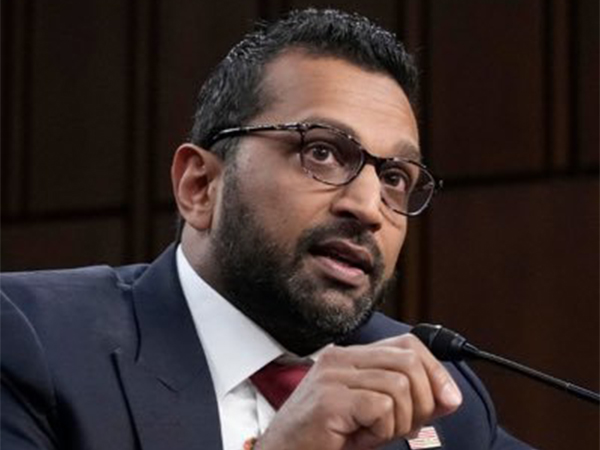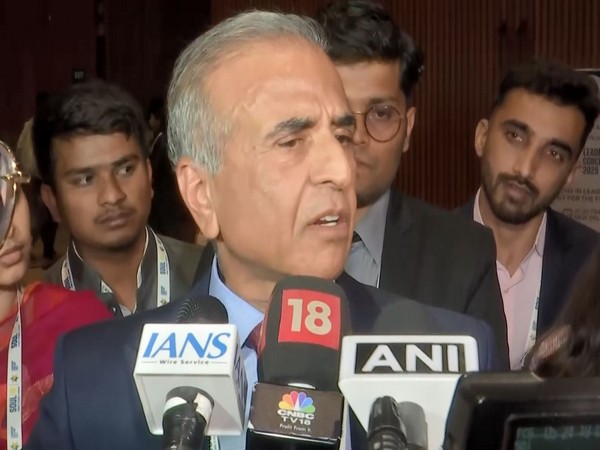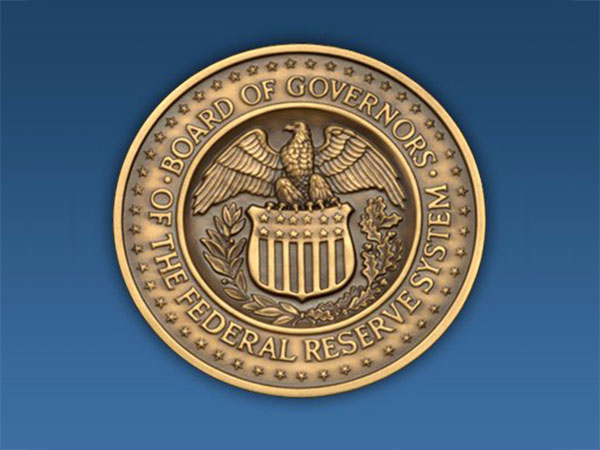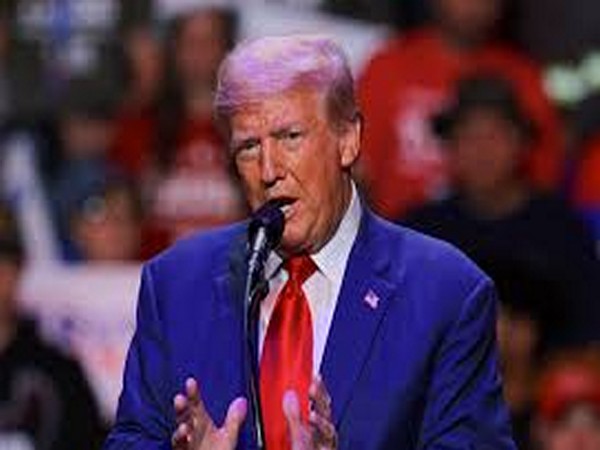
New York [US], December 9 (ANI): In his first broadcast network interview since his re-election, President-elect Donald J Trump outlined an assertive plan for his second term, pledging sweeping policy changes and controversial actions on immigration, criminal justice, and executive leadership.
Among his promises, Trump vowed to pardon hundreds of Capitol rioters, end automatic citizenship for children born to immigrants in the United States, and push for retribution against political adversaries, including members of Congress who investigated him, New York Times reported.
Trump, speaking on NBC’s Meet the Press with Kristen Welker, declared that on his first day in office next month, he would grant clemency to his supporters convicted for their involvement in the January 6, 2021, Capitol attack.
“Yeah. But I’m going to be acting very quickly,” Trump said when asked if he would consider pardoning everyone involved. He clarified, “There may be some exceptions, those who were radical, crazy.” Defending those who assaulted law enforcement officers during the riots, Trump said, “Because they had no choice,” adding that the incarcerated rioters were being kept in “a filthy, disgusting place that shouldn’t even be allowed to be open.”
Further emphasising his ambitions to reshape immigration policy, Trump pledged to eliminate birthright citizenship, a constitutional guarantee under the 14th Amendment that grants citizenship to anyone born in the United States, regardless of their parents’ immigration status.
While legal scholars have largely dismissed this as unconstitutional, Trump said, “We’re going to have to get it changed,” leaving open the possibility of pursuing executive actions or constitutional amendments. “We’ll maybe have to go back to the people. But we have to end it,” he added. The president-elect inaccurately claimed, “We’re the only country that has it,” despite 34 other nations also offering unrestricted birthright citizenship, reported New York Times.
In a notable deviation from his hardline rhetoric, Trump expressed a willingness to collaborate with Democrats to protect Dreamers, undocumented immigrants brought to the US as children. “We have to do something about the Dreamers because these are people that have been brought here at a very young age,” he said. “And many of these are middle-aged people now.
They don’t even speak the language of their country. And yes, we’re going to do something about the Dreamers.” While he blamed Democrats for failing to safeguard Dreamers, it was former President Barack Obama who introduced the Deferred Action for Childhood Arrivals (DACA) program in 2012, shielding 700,000 individuals from deportation. Trump previously attempted to rescind DACA but faced legal roadblocks in the Supreme Court.
The president-elect also hinted at significant changes within federal institutions, particularly the FBI. He suggested firing FBI Director Christopher A. Wray, whom he appointed in 2017, citing grievances over the agency’s investigation into his handling of classified documents and its response to the assassination attempt on him earlier this year. “He invaded my home,” Trump said, referencing the FBI’s 2022 search of his Mar-a-Lago estate.
“When I was shot in the ear, he said, ‘Oh, maybe it was shrapnel.’ Where’s the shrapnel coming from? Is it coming from heaven? I don’t think so.” While Trump stopped short of explicitly stating he would remove Wray, he suggested it was likely, stating, “It would sort of seem pretty obvious that if Kash [Patel] gets in, he’s going to be taking somebody’s place, right?”
Kash Patel, a staunch Trump loyalist and potential FBI director, has drawn criticism for his aggressive stance against perceived adversaries, as outlined in a 2023 book naming about 60 individuals as members of the so-called “executive branch deep state.” While Trump dismissed fears that Patel would pursue investigations into political foes, he left room for interpretation. “If they were crooked, if they did something wrong, if they have broken the law, probably,” he said.
Trump‘s interview also included veiled threats against members of the bipartisan House committee that investigated his role in the January 6 attack. Targeting former Representative Liz Cheney and others, he stated, “For what they did, honestly, they should go to jail.” However, he clarified that he would not direct the attorney general or FBI director to pursue such investigations but suggested they should act independently. “I think that they’ll have to look at that, but I’m not going to order them to,” he said.
Cheney responded with a sharp rebuke, stating, “Donald Trump‘s suggestion that members of Congress who later investigated his illegal and unconstitutional actions should be jailed is a continuation of his assault on the rule of law and the foundations of our republic.” She further noted, “There would be no conceivably appropriate factual or constitutional basis” to prosecute the committee members.
As Trump prepares to assume office, President Joe Biden and his team are reportedly considering issuing blanket pardons to individuals, including Cheney, who have drawn the ire of the president-elect. Concerns over Trump‘s rhetoric and threats of retribution have intensified, particularly with the impending appointment of loyalists like Patel to key positions, New York Times reported.
The sweeping policy changes outlined by Trump, including potential challenges to constitutional guarantees, have already sparked legal and political debates. Most notably, federal judges have expressed apprehension over blanket pardons for Capitol rioters. Judge Carl J Nichols, a Trump appointee, recently remarked, “It would be beyond frustrating and disappointing if there were blanket pardons for Jan. 6 defendants or anything close.”
With plans to initiate executive actions on immigration, the economy, and energy on Day 1 of his second term, Trump seems intent on reshaping the nation’s political and social landscape while fuelling controversy over the legality and ethicality of his proposed actions. (ANI)
